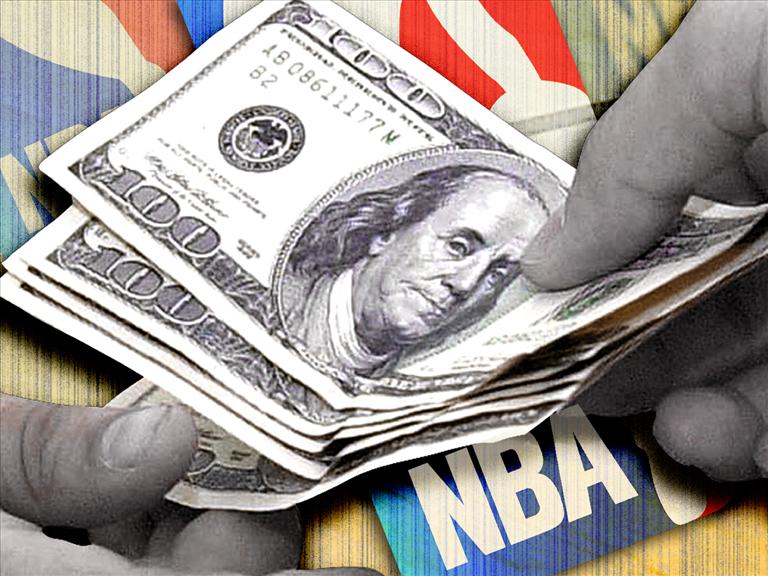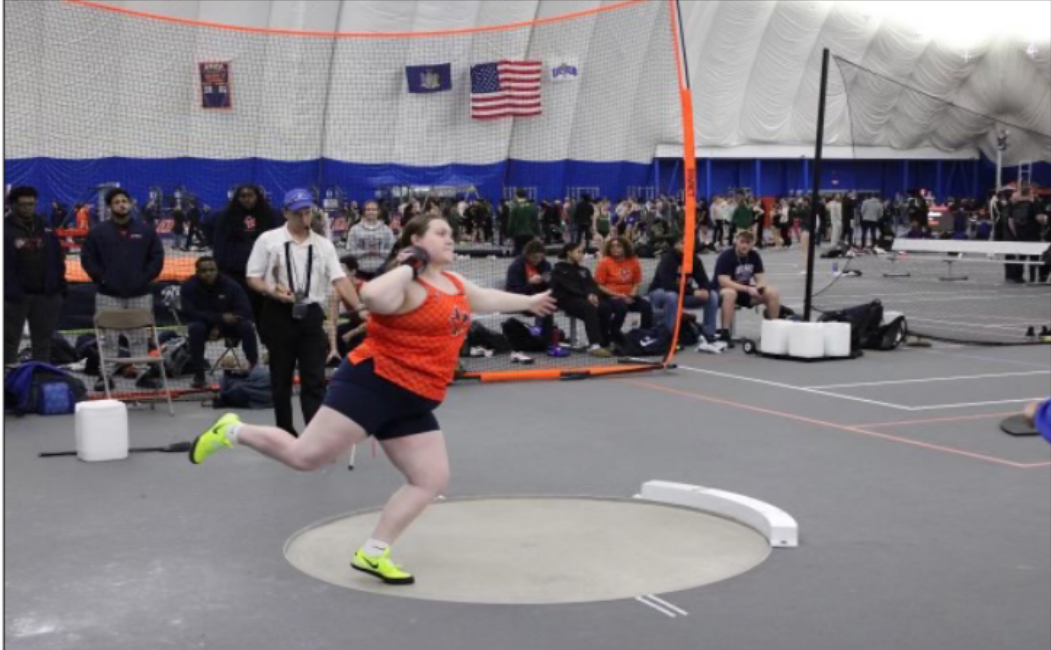A new law that would have allowed full-scale sports betting failed in June 2018 may be reintroduced in 2019 to potentially make New York the ninth state to legalize sports gambling.
One of the main motives behind potentially legalizing sports betting in New York is the revenue that the state may generate.
New York may see as much as $500 million in gross sports wagering revenue if the state adopts a law expanding sports gambling to all of the existing gambling operators in New York as well as mobile options, according to David Lombardo of the Times Union. For reference, neighboring state New Jersey generated $23.9 million in total revenue in September alone, according to The Lines.
A Look at Bill S7900C
Senate Bill S7900C, the bill that would legalize sports gambling in New York, is an act to amend the racing, pari-mutuel wagering and breeding law, in relation to regulation of sports betting, according to the New York Senate’s official website.
The purpose of Senate Bill S7900C is to update the existing provisions of a 2013 law which allows four upstate casino gaming resorts — del Lago Resort and Casino, Tioga Downs Casino, Rivers Casino and Resort Schenectady, and Resorts World Catskills — to conduct sports betting in the event of a change in the federal law which currently prohibits sports betting in New York.
The bill states that casinos would be required to pay a royalty fee of .2 percent of handle to the state for sports governing bodies and pay a state tax of 8.5 percent of gross sports wagering revenue. The bill also states that between $10 million and $30 million will go annually to New York State for education based upon conservative market estimates. That would go along with the $3.37 billion already generated in educational revenue by the New York Lottery in 2017-18, according to New York Lottery.
Horse racing is also addressed within the bill as it clarifies that pari-mutuel wagering on horse racing is not included within sports betting but provides the circumstances under which casinos may offer pari-mutuel wagering on horses. One of the issues that comes with horse racing is whether or not casinos will, according to Will Springstead of the Post Star.
“The question is how much will casinos actually get out of horse racing, it depends on how the legislature crafts it,” Springstead said. ‘The legislators in the past have been favorable to race tracks because they realize the race tracks have been losing business; horse racing is slowly dying but it provides a lot of jobs to New York state. So they have been good to the tracks to give them a cut of things. On this one, they may not. But it becomes a political question. Look at other states, it’s mostly baseball, basketball, football, so you won’t get a lot of money off of horse racing. Will they include it, probably. Are they going to make a ton of money off it, not really.”
Daily Online Fantasy Sports
Although full-scale sports betting is not legal in New York, acting state Supreme Court Justice Gerard Connolly found last year that online fantasy sports infringed the strict prohibition on gambling in New York’s Constitution because DraftKings’ and FanDuel’s contests involve a significant element of chance, according to Lombardo.
Lombardo points out that interactive fantasy sports companies generated about $4.9 million in state tax revenue in 2017, according to a state report. If the state is unable to collect the revenues, New York would be missing out on about $93,560 a week based on last year’s report.
Although online fantasy sports are unconstitutional, there is nothing the state can do about stopping them and the money that is not coming its way, according to Lombardo.
“Because online interactive fantasy sports are deemed unconstitutional the legislator did not have the authority to craft a regulatory structure for interactive fantasy sports,” Lombardo said. “Even the state regulator gaming commision has acknowledged they can’t even regulate the industry. So if a new company wants to come in, they come in.”
According to Forbes, DraftKings announced in July 2018 a new partnership with del Lago Resort in Waterloo, N.Y., which will give DraftKings a physical sportsbook presence and give them a chance to create a mobile and online wagering option assuming that New York regulates such sports betting in the future.
In a research study conducted by Eilers and Krejcik Gaming, New York residents were responsible for $268.3 million in entry fees in 2015, second behind only California. Industry supporter Fantasy for All estimates more than three million New Yorkers participate in fantasy sports.
One of those three million New Yorkers is Lonnie Royer, a consistent sports gambler for over the past three decades. He believes that online fantasy sports, as well as full-scale sports betting, is a win-win for the state and its citizens.
“Between the financial gain for the state and the possible winnings for those who place bets, it’s a good and legal situation for all involved,” Royer said. “I’ve been betting on sports for around 35 years, and in reality, many people like myself do it anyway so the state might as well legalize it fully to get some tax revenue out of it.”
Benefits and Downfalls
Although revenue is a major factor behind New York allowing full-scale sports gambling, there are downfalls to it that may be standing in the way of legalization.
Experts have started to warn about the expected rise in gambling addiction once sports betting becomes fully legal. According to USA Today, $115 billion was generated in legal gambling in 2017 and states allocated $71 million for addiction prevention and treatment, less than a 10th of a percent of the total revenue.
Kayla Herb, a junior at Siena College, was young when her father struggled with a gambling addiction. Years later as a college student, Herb is still struggling with the effects of her father’s gambling.
“My parents started a bank account for me when I was younger to put money away for when I reached college,” Herb said. “A few years ago my dad ended up gambling away the majority of what was in there on horses and games. So now in my junior year of college, I have to worry more about how I’m paying for my education when I graduate than I would have if my dad never faced a gambling addiction.”
There is also a risk that comes along with online sports betting in terms of putting money into an account and losing it all before the possibility of making a bet, a situation in which Joe Capuano recently encountered.
He put money in his account on sportsbetting.ag, and before he could place what would have been a winning bet, Capuano was notified his account was put on hold and he was never reimbursed his money. As it was his first time using an online sports betting site, Capuano was not expecting his money to be taken from him.
“Having that happen to me definitely ruined my outlook and experience with online sports gambling,” Capuano said. “You would think those sites would be trustworthy and highly functional, but I guess that’s not the case with all of them and I’m hesitant to try another one to find out.”
Aside from the revenue New York would be expected to generate from legal sports gambling, there are other reasons why citizens of the state want it legalized. Zoe Williams, a resident of Duanesburg, N.Y., is an advocate for legalized sports betting because of how her earnings help her pay for necessities.
“Some people take a risk in investing in stocks to attempt making some extra money, I take a risk on betting on sports teams in hopes to make extra money,” Williams said. “I work three jobs and it’s still hard to pay for everything I need, so if you use your winnings in a responsible way like I do to pay off my student loans and house, I don’t see why sports betting shouldn’t be legal.”
Pros and cons aside, Lombardo believes that sports betting in New York will become legal in 2019.
“In New York, if things come to a vote, they typically pass,” Lombardo said. “Now there is enough appetite [for sports gambling], everyone wants the revenue and there is no rush.”


















![President Todd Pfannestiel poses with Jeremy Thurston chairperson Board of Trustees [left] and former chairperson Robert Brvenik [right] after accepting the university's institutional charter.](https://uticatangerine.com/wp-content/uploads/2023/10/unnamed.jpeg)





















































































































